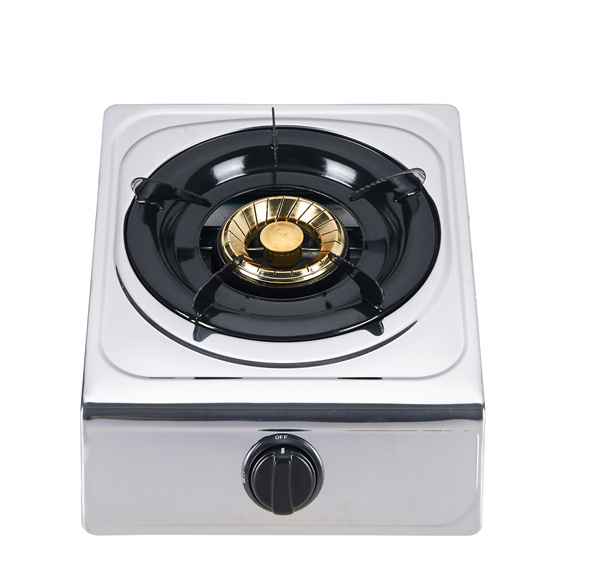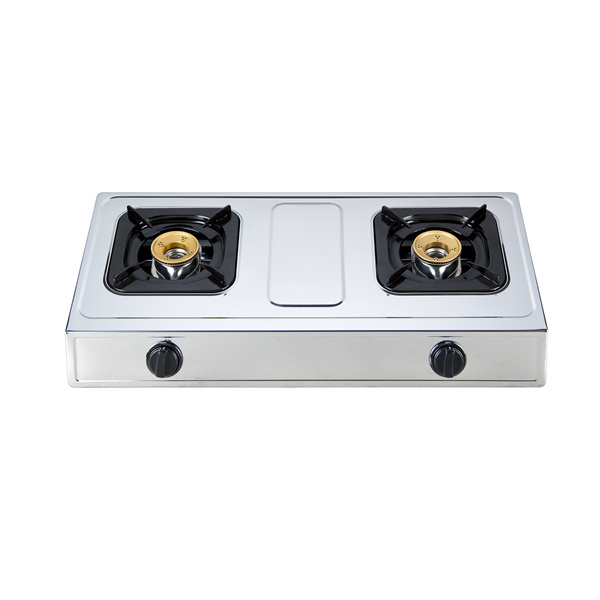Our expert, award-winning staff selects the products we cover and rigorously researches and tests our top picks. If you buy through our links, we may get a commission. Reviews ethics statement
Worried about air quality in your home caused by a natural gas stove? Here's what you need to know and how you can mitigate the risk. Kitchen Appliances

There are simple ways to guard against the potential dangers of natural gas.
If you're just getting up to speed on the issue, a heated debate over gas stove safety has been sparked over the past year with two studies showing that natural gas stoves leak more than was previously known and that leaked gas poses a bigger long-term health threat, particularly to children (more on that below). While there's not likely to be a gas stove ban soon, the risk of these ubiquitous household appliances is becoming more apparent.
Those dangers are heightened during the cold months when most of us keep our kitchen windows closed, making them far more difficult to ventilate. Adding a powerful fan, air purifier or both to your kitchen when the stove is on will lower the chances of your air quality becoming dangerously poor.
The good news is that there are simple ways to prevent and detect dangerous air quality conditions and keep yourself safe. Adding a fan to your kitchen setup to run alongside the oven and help disperse toxins is one of the easiest and cheapest bulwarks against leaky gas stoves.
The conversation around gas stove safety reached a fever pitch in January when Richard Trumka, an official with the US Consumer Product Safety Commission, hinted in an interview with Bloomberg that natural gas stoves could be banned if found to be dangerous. Trumka has since walked back the comments following a firestorm of backlash. While the CPSC has not made any formal statements about natural gas stoves being unsafe, there is mounting evidence to the contrary.
As many as 40% of stoves in the US run on natural gas. In its unburned state, natural gas contains harmful air toxins, including benzene, a chemical linked to cancer, and methane, which is harmful to the environment. In theory, natural gas' harmful toxins are eliminated during combustion, but last year's Harvard study proved stoves often leak the toxic unburned gas when not in use. The study also found that the odorants added to natural gas to help people detect leaks were done inconsistently, making it harder to catch a gas leak using your nose.
Another study from December 2022 showed that US homes with natural gas stoves had 13% more instances of childhood asthma. The number was even higher in certain states, including Illinois, New York and California.
Keeping kitchen windows cracked while cooking is the best defense against harmful toxins and poor air quality.
Keeping your kitchen well-ventilated, especially while cooking with gas, is one of the best defenses against gas leaks, airborne chemicals and toxins. Most kitchens have windows; if weather permits, you should always keep one open or cracked while cooking.
During these colder months when cracking a window isn't always a viable option, you should consider adding a powerful fan to the kitchen that will help disperse concentrated air that may be harmful.
You should also run the exhaust fan above your range whenever the oven burner or stove is on and keep it running for 20 minutes or so even after you're finished since nasty stuff such as benzene and carbon monoxide may still be lingering in the air.
Airthings View Plus will monitor your air quality around the clock and alert you in real-time if things become dangerous.
Arguably, even more important than kitchen ventilation is keeping tabs on your air quality, and several devices are designed to do just that. Adding a carbon monoxide detector is a good start, but most are limited in the toxins they detect. More advanced air quality monitors such as Airthings View Plus and Nest Protect will register other volatile organic compounds (the bad stuff) and sync with an app to alert you directly via your mobile device when air quality becomes dangerous.
As a bonus, monitors like Airthings detect radon, an airborne carcinogen that occurs naturally as well as other harmful VOCs emitted from plastic wrapping materials, packaging and elsewhere.
This one may seem obvious, but letting the gas run before lighting more than a second or two can emit harmful toxins into your kitchen. If your stove burners aren't igniting right away, you may want to have the stove inspected, repaired or replaced. And double check that all burners are switched off when you've finished cooking.
HEPA air purifiers will reduce volatile organic compounds but not eliminate them. They should be used in concert with other defenses against poor kitchen air quality.
HEPA air purifiers help to clean dirty air, and adding one can lower the risk of airborne toxins in the kitchen. But there are several toxins in natural gas, including benzene and carbon monoxide, that air purifiers won't remove. So, plopping one by the stove is by no means a panacea for poor kitchen air quality. HEPA air purifiers may reduce these harmful volatile organic compounds but they won't eliminate them. These products should be used in concert with other defenses and safeguards.
If you're concerned about your stove leaking gas, call the gas company and they will likely send someone to check free of charge.
Last year's Harvard study shows that gas stoves leak far more when not in use than previously thought. Because this gas is unburned, it's particularly toxic if inhaled. If you're worried about how much gas is leaking from your stove, you can have it tested by a service person from your gas company or hire a professional.
This is particularly important if you ever smell gas in the kitchen. If you do, you can bet there is probably a gas leak, and you should vacate the home until the problem is identified. If you want to test for gas leaks yourself, you can buy a detector for about $30 on Amazon .
Induction stovetops pose far lower risks than their natural gas counterparts.
This is the most surefire fix but also the most inconvenient and expensive solution. Switching to an electric stove or non-toxic propane fuel will mitigate the risks associated with natural gas. But even cooking with an electric stove can negatively affect air quality since burnt food and oils can release toxins into the air. It's a much lower risk than natural gas but is still reason enough to keep your kitchen ventilated and regularly test for air quality.

Auto Ignition Gas Hob Check out more CNET Home Tips including how to slash your monthly internet bill and the three places to never put a home security camera .